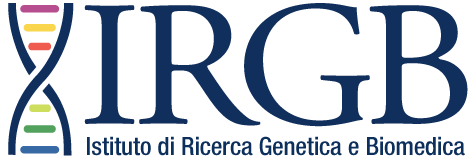Project Description
DETECT
DEciphering geneTic hEterogeneity in ColorecTal cancer: in situ and circulating cell subtypes identification
Colorectal cancer (CRC) is the 2nd most mortal cancer worldwide, despite advances in healthcare and screening, CRC remains a major public health problem. Tumor drug resistance dues to inter and intratumor heterogeneity (ITH) is the mainly cause rising CRC mortality, such as sequential molecular heterogeneity during treatment influences prognosis. Knowing CRC heterogeneity is vital for an accurate diagnosis, a better treatment decision-making, monitoring minimal residual disease and the onset of drug resistance, all mechanisms of effective personalized treatment. The current study is based on the identification of specific genomic areas in molecularly stratified patient populations that regulate crucial pathways in CRC evolution from single cell profiling to molecular follow-up. We want to use a broad-spectrum multiomics approach to accurately predict prognosis and drug resistance in CRC patients, through the monitoring clonal evolution and ITH to detect the emergence of resistant clones non-invasively in patients. We study CRC and matched normal mucosa using both single cell analysis and total transcriptome data from neoplastic tissue to investigate molecular characteristics and genetic heterogeneity in CRC cancer clones. Spatial location and correlations with the development of resistance will be analyzed and the benefits of therapy monitored. We aim to identify sensitive-specific therapeutic biomarkers based on genomic features that will allow longitudinal monitoring of cancer evolution and drug resistance. The project will focus on generating single cell, total RNASeq and genomic data along with histopathological and immunohistochemical analysis and finally proteomic assays. Cellular profiling of tumor tissue should be combined with liquid biopsy to estimate the level of concordance within a patient to ascertain the applicability of liquid biopsies. Implementation of genome data, gene expression and assessment of the presence/quantification of tumor DNA/RNA in blood can make a detailed spatial map of single-cell phenotypes, cell communities and their link to neoplastic diseases. Specific attention will be focused on identified specific lineages in CRC by comparing tumors with different location and multicellular features of cancer microenvironment and newly identified CRC groups. Understanding how tumors evolve heterogeneous mechanisms of acquired drug resistance is critical to finding effective strategies to sustain treatment efficacy and prevent cancer relapse. Genome analysis can detect heterogeneous mechanisms of drug resistance in CRCs and can be used for longitudinal follow-up of patients and the construction of detailed molecular maps of resistance mechanisms. ITH is the main challenge in CRC: genomic/transcriptomic aberrations at the cellular and intra-individual level will improve the prediction of drug response leading to optimization of therapeutic protocols and reduction of cancer progression.

Funding sources:
PRIN2022 - Ministero dell’Istruzione, dell’Università e della Ricerca (Roma, IT) - GRANT_NUMBER: 2022WBLA3Z
Research Team:
The project is coordinated by Andrea Angius, Institute of Genetic and Biomedical Research (IRGB) and consist of an additional Unit lead by Maria Rosaria De Miglio, Department of Medical, Surgical and Experimental Sciences at the University of Sassari.

